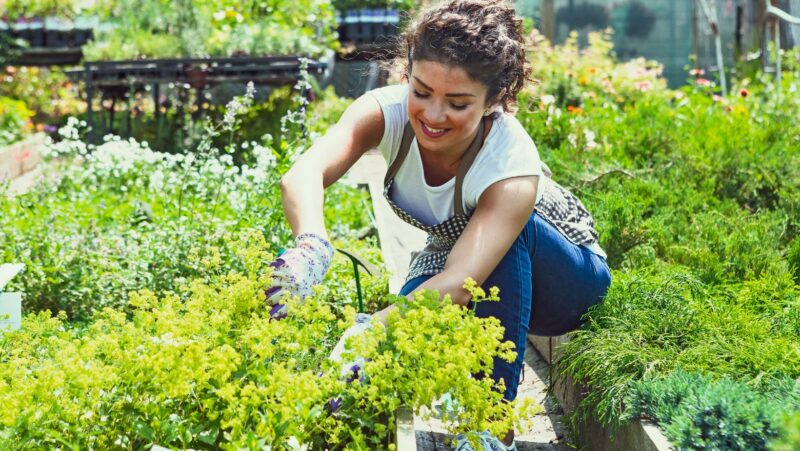
Ants, those tiny but tenacious creatures, can quickly become a household nuisance. From their annoying trails to their potential for damage, ant infestations can be a frustrating problem. Understanding different ant species and their behaviors is essential for effective control. In this comprehensive guide, we’ll explore common ant species, their habits, and effective methods for preventing and eliminating infestations.
The Tiny Tyrants: Common Ant Species
There are countless species of ants, each with its own unique characteristics and behaviors. Some of the most common household invaders include:
- Sugar Ants: These sweet-toothed critters are drawn to sugary substances and often invade homes in search of treats. These are a common pest in states like Florida. To get rid of Florida sugar ants, start by eliminating their food source. Store food in airtight containers and clean up spills promptly. Seal entry points to prevent ants from entering your home, and use ant baits that are specifically designed for sugar ants. These baits contain a slow-acting poison that is carried back to the nest by worker ants, killing the entire colony. For severe infestations, consider hiring a professional pest control company that specializes in ant control.
- Carpenter Ants: These wood-destroying insects can cause significant damage to homes and buildings. They excavate tunnels within wood to create their nests. To get rid of carpenter ants, it’s important to identify their nests. Look for signs of damage, such as sawdust or wood shavings, and listen for a hollow sound when you tap on the affected area. Once you’ve located the nest, treat it with a professional-grade insecticide. It’s also crucial to address any underlying moisture problems that may be attracting carpenter ants. Repair leaks, improve ventilation, and remove any standing water.
- Fire Ants: Known for their aggressive behavior and painful stings, fire ants can be a serious problem in outdoor areas. They build large mounds and can invade homes in search of food and water. To get rid of fire ants, avoid disturbing their mounds. Doing so can cause them to attack. Instead, use a commercial fire ant bait that is specifically designed for these insects. These baits contain a slow-acting poison that is carried back to the nest by worker ants, killing the entire colony. Remember, it’s important to wear protective clothing when dealing with fire ants to avoid stings.
- Pharaoh Ants: These tiny, reddish-brown ants often infest homes and businesses. They can be difficult to eradicate due to their ability to reproduce quickly. To get rid of pharaoh ants, start by eliminating their food source. Store food in airtight containers and clean up spills promptly. Seal entry points to prevent ants from entering your home. Use ant baits that are specifically designed for pharaoh ants. These baits contain a slow-acting poison that is carried back to the nest by worker ants, killing the entire colony.

- Odorous House Ants: These ants are named for their unpleasant odor when crushed. They often invade homes in search of food and water. To get rid of odorous house ants, start by eliminating their food source. Store food in airtight containers and clean up spills promptly. Seal entry points to prevent ants from entering your home. Use ant baits that are specifically designed for odorous house ants. These baits contain a slow-acting poison that is carried back to the nest by worker ants, killing the entire colony.
- Pavement Ants: These ants are commonly found in outdoor areas, but they can also invade homes. They are often a nuisance, but they do not cause significant damage. To get rid of pavement ants, use ant baits that are specifically designed for these insects. These baits contain a slow-acting poison that is carried back to the nest by worker ants, killing the entire colony.
For severe infestations of any of the above, or if you have young children or pets, consider hiring a professional pest control company that specializes in ant control.
Understanding Ant Behavior
To effectively control ants, it’s important to understand their behavior. Ants are social insects that live in colonies. They communicate with each other using pheromones, chemical signals that help them find food, locate their nests, and coordinate their activities.
Ants are constantly searching for food and water. They often follow trails left by other ants to find new food sources. By understanding how ants forage, you can identify potential entry points and eliminate their food sources.
Chemical Treatments
Ants can be a persistent and frustrating pest, invading homes and businesses in search of food and water. While there are several approaches to controlling ant infestations, chemical treatments often play a significant role.There are various chemical options available, from targeted baits to broader-spectrum sprays.
- Ant Baits and Gels: Ant baits and gels are a popular way to control ant infestations. They contain a slow-acting poison that is carried back to the nest by worker ants, killing the entire colony.
- Insecticidal Sprays and Powders: Insecticidal sprays and powders can be used to kill ants on contact. However, these products may not be as effective as baits and gels for controlling entire colonies.
- Professional Pest Control Services: If you have a severe ant infestation or are unable to control the problem on your own, consider hiring a professional pest control company.
Prevention is Key
Preventing ant infestations is often easier than treating them. Here are some tips for preventing future problems:
- Regular Inspections: Inspect your home regularly for signs of ant activity, such as trails, nests, or ants entering through cracks and crevices.
- Landscape Management: Keep your yard free of debris and excess moisture, which can attract ants.

- Ongoing Maintenance: Continue to take preventive measures to prevent future ant infestations.
Additional Tips
While the above methods provide a solid foundation for ant control, additional strategies can enhance your efforts. By identifying the specific ant species, addressing underlying issues, and seeking professional help when necessary, you can effectively eliminate infestations and prevent future problems.
- Identify the Ant Species: Knowing the type of ant you’re dealing with can help you choose the most effective control method.
- Eliminate Food Sources: Store food in airtight containers and clean up spills promptly.
- Remove Moisture Sources: Address any leaks or plumbing issues to prevent moisture from attracting ants.
- Consider Professional Help: If you have a severe ant infestation or are unable to control the problem on your own, consulting a professional pest control company is recommended.
By understanding different ant species, their behavior, and effective control methods, you can effectively eliminate ant infestations and prevent future problems. Remember, patience and persistence are key when dealing with these tiny invaders.












